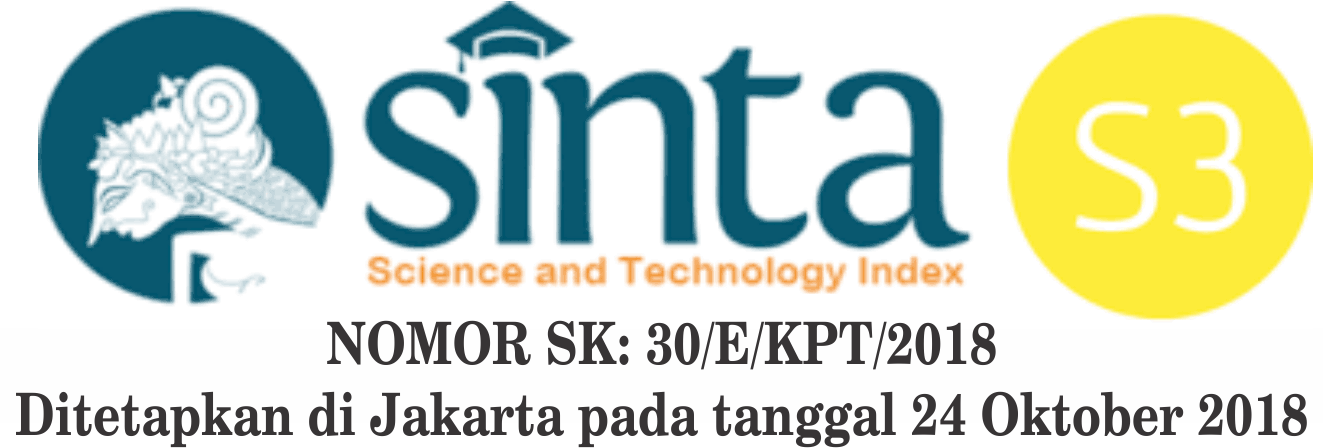GLOBAL INJUSTICE AND INEQUALITY: REFLECTIONS ON WHY CITIZENSHIP EDUCATION MATTERS
Abstract
Global injustice and inequality are problems related to the unequal distribution of resources and opportunities throughout the world. This causes a large number of people and countries to have limitations in achieving their potential. Therefore, it is necessary to prepare prospective citizens who are ready to face changes in the order of life in the country. Education is expected to be able to overcome the country's problems, especially injustice, and inequality. In building global insight and forming good global citizens, there are basic values contained in civic education. This value is the goal and foundation for the development of civics education. By using qualitative research methods through literature studies, the authors try to examine how important the role of civics education is in addressing global injustice and inequality. This research was conducted through several stages including collecting library data, taking notes, reviewing data sources, and processing information. The conclusion from this study is that it is important to involve the integration of civics education in the education system, focus on practical skills, community participation, research and innovation support, and building international alliances. Civic education also helps build a culture of tolerance and reinforces values of social solidarity to help eradicate discrimination and promote equality.
Keywords
Full Text:
PDFReferences
Ali, M. (2009). Pendidikan untuk pembangunan nasional: menuju bangsa Indonesia yang mandiri dan berdaya saing tinggi. Grasindo.
Carr, J. A., Seekell, D. A., & D’Odorico, P. (2015). Inequality or injustice in water use for food? Environmental Research Letters, 10(2), 024013. https://doi.org/10.1088/1748-9326/10/2/024013
Cogan, J. J. (2000). Citizenship education for the 21st century: Setting the context. Citizenship for the 21st Century: An International Perspective on Education, 1–21.
Dahliyana, A., Budimansyah, D., & Nurdin, E. S. (n.d.). Pendidikan Kewarganegaraan Dalam Konteks Pendidikan Umum Dan Pendidikan Karakter Di Perguruan Tinggi. Indonesia Emas Group.
Damri, M. P., Putra, F. E., & Kom, M. I. (2020). Pendidikan kewarganegaraan. Prenada Media.
Fadilah, F. (2018). Urgensi Pendidikan Kewarganegaraan dalam Konteks Isu Global (HAM) di Afrika Selatan dan Hong Kong. Journal of Moral and Civic Education, 2(1), 8–15.
Febrianti, F. (2020). Review Literatur: Pendidikan Kewarganegaraan Dalam Konteks Global Cite this paper.
Flejterski, S. (2018). Globalization and deglobalization–costs and benefits, winners and losers. Logistics and Transport, 39.
Hickel, J. (2017). Is global inequality getting better or worse? A critique of the World Bank’s convergence narrative. Third World Quarterly, 38(10), 2208–2222. https://doi.org/10.1080/01436597.2017.1333414
Hunter, B., White, G. P., & Godbey, G. C. (2006). What does it mean to be globally competent? Journal of Studies in International Education, 10(3), 267–285.
Jamaludin, J., Brata, D. P. N., Fitrayadi, D. S., Manullang, S. O., Salamun, S., Fadilah, N., … Moad, M. (2021). Pendidikan Pancasila dan Kewarganegaraan. Yayasan Kita Menulis.
Koch, M. (2010). Perceptions of global inequality in world society. Peace Review, 22(4), 382–389. https://doi.org/10.1080/10402659.2010.524559
Leek, J. (2016). Global citizenship education in school curricula. A Polish perspective. Journal of Social Studies Education Research, 7(2).
Lubis, M. A. (2020). Pembelajaran Pendidikan Pancasila Dan Kewarganegaraan:(PPKN) DI SD/MI: Peluang Dan Tantangan Di Era Industri 4.0. Prenada Media.
Marantika, D., & Viphindrartin, S. (2018). Disparitas Regional Antar Provinsi Di Indonesia 2011–2015 (Model Regresi Spasial). Media Trend, 13(1), 31–46.
Moellendorf, D. (2009). Global inequality and injustice. Journal of International Development, 21(8), 1125–1136. https://doi.org/10.1002/jid.1651
Murdiono, M. (2014a). Pendidikan Kewarganegaraan untuk membangun wawasan global warga Negara muda. Jurnal Cakrawala Pendidikan, 33(3).
Murdiono, M. (2014b). Pendidikan Kewarganegaraan untuk membangun wawasan global warga Negara muda. Jurnal Cakrawala Pendidikan, 33(3).
Prantiasih, A. (2016). Hak Asasi Manusia Bagi Perempuan. Jurnal Ilmiah Pendidikan Pancasila Dan Kewarganegaraan, 25(1).
Prayetno, P. (n.d.). Warga Negara Global; Tantangan, Peluang Dan Tanggung Jawab Bersama. Humanitas: Jurnal Kajian Dan Pendidikan HAM, 8(1), 1–20.
Qarnain, S. S., Sattanatha, M., & Sankaranarayanan, B. (2020). Analysis of social inequality factors in the implementation of building energy conservation policies using Fuzzy Analytical Hierarchy Process Methodology. International Journal of Sustainable Energy Planning and Management, 29, 153–170.
Rahman, I. N. (2016). Pengaruh civic literacy dalam pembelajaran Pendidikan Kewarganegaraan terhadap partisipasi politik siswa. Untirta Civic Education Journal, 1(1).
Sinaga, T. B. (2018). Peranan Hukum Internasional Dalam Penegakan Hak Asasi Manusia. Jurnal Hukum Unsrat, 1(2), 94–105.
Suharto, E. (2015). Peran perlindungan sosial dalam mengatasi kemiskinan di Indonesia: Studi kasus program keluarga harapan. Sosiohumaniora, 17(1), 21–27.
Sumardjoko, B. (2013). Revitalisasi nilai-nilai pancasila melalui pembelajaran pkn berbasis kearifan lokal untuk penguatan karakter dan jati diri bangsa.
Sutrisno. (2018a). Peran Pendidikan Kewarganegaraan Dalam Membangun Warga Negara Global Sutrisno Staf Pengajar Prodi PPKn FKIP Universitas Muhammadiyah Ponorogo. Retrieved from http://e-journal.unipms.ac.id/index.php/citizenship
Sutrisno, S. (2018b). Peran pendidikan kewarganegaraan dalam membangun warga negara global. Citizenship Jurnal Pancasila Dan Kewarganegaraan, 6(1).
Suwardani, N. P. (2020). “Quo Vadis” Pendidikan Karakter: dalam Merajut Harapan Bangsa yang Bermartabat. Unhi Press.
Syaifullah, S. P. (n.d.). Memperkokoh Pancasila Sebagai Ideologi Bangsa Dalam Membangun Warganegara Berkarakter Di Era Global. Jurnal Majelis, 57.
Tohani, E. (2020). Hubungan Dialektis Pendidikan dan Pembangunan. UNY Press.
Unterhalter, E. (2017). Global injustice, pedagogy and democratic iterations: some reflections on why teachers matter. Journal of Curriculum Studies, 49(1), 24–37. https://doi.org/10.1080/00220272.2016.1205141
Warda, N., Elmira, E., Rizky, M., Nurbani, R., & al Izzati, R. (2018). Dinamika Ketimpangan dan Penghidupan di Perdesaan Indonesia, 2006–2016. Jakarta: The SMERU Research Institute.
Winarno, B. (2008). Globalisasi: Peluang atau ancaman bagi Indonesia. Erlangga.
Yuliani, M. (2019). Ketimpangan Pendidikan di Era Globalisasi.
Yusanto, Y. (2020). Ragam Pendekatan Penelitian Kualitatif. Journal of Scientific Communication (Jsc), 1(1).
Zahabioun, S., Yousefy, A., Yarmohammadian, M. H., & Keshtiaray, N. (2013). Global citizenship education and its implications for curriculum goals at the age of globalization. International Education Studies, 6(1), 195–206.
DOI: https://doi.org/10.24114/jupiis.v15i2.44051
Article Metrics
Abstract view : 119 timesPDF - 96 times
DOI (PDF): https://doi.org/10.24114/jupiis.v15i2.44051.g22552
Refbacks
- There are currently no refbacks.
Copyright (c) 2023 JUPIIS: JURNAL PENDIDIKAN ILMU-ILMU SOSIAL

This work is licensed under a Creative Commons Attribution 4.0 International License.
JUPIIS: Jurnal Pendidikan Ilmu-ilmu Sosial

This work is licensed under a Creative Commons Attribution 4.0 International License


